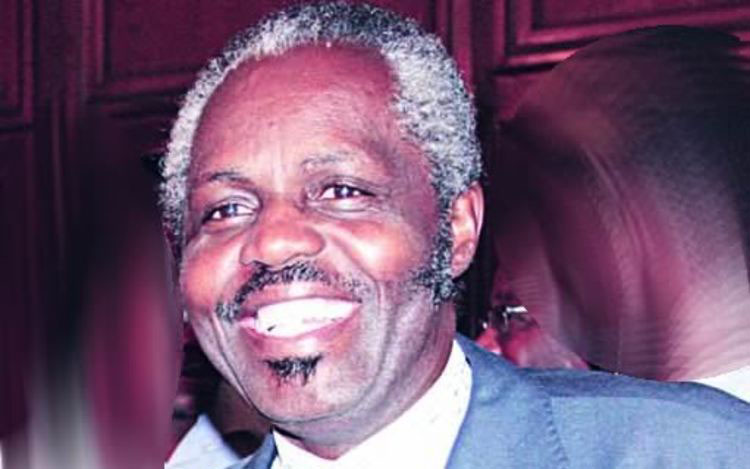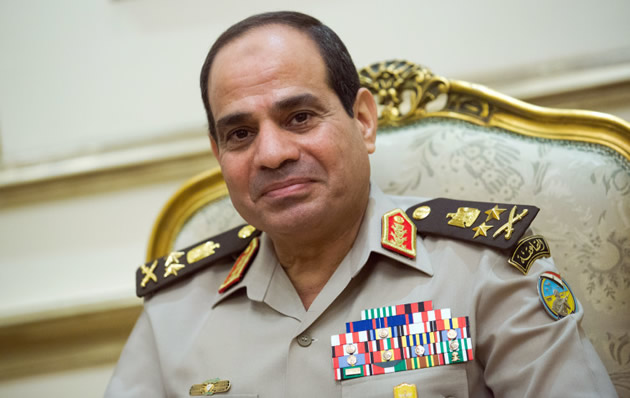Africa must keep struggle for unity alive — Mwana Nanga

Lovemore Ranga Mataire: THE INTERVIEW
Africa Day, which was commemorated on May 25, is a public holiday in a handful of countries. That says a lot about the different perspectives African countries have on the issue of continental unity as envisaged by the founding fathers of the Organisation of African Unity (OAU) in 1963. However, in a conversation with our Senior Writer Lovemore Ranga Mataire (LRM), the Dean of the African Diplomatic Corps Mwampanga Mwana Nanga (MMN) says public holiday or not, Africa Day remains special
LRM: Your Excellency, only Zimbabwe, Namibia, Ghana, The Gambia, Zambia and Mali have Africa Day as a public holiday out of 54 countries. Doesn’t this worry you given the importance attached to this day?
MMN: I applaud those countries that have not declared Africa Day a holiday because if Africa needs anything today, it’s not a holiday. We need to work more. In my view, everyday should be Africa Day. We must celebrate Africa Day by working more. So those who have not declared it a holiday are right and those who have declared must stop. When you talk of holiday in Africa, people think of drinking beer and so forth. Making it not a holiday doesn’t mean we should not celebrate the day.
LRM: But others would argue that not declaring it a public holiday means not attaching any importance to the day and it sends wrong signals to future generations.
MMN: No what I am saying, if holiday is what we perceive holiday today like having a good time, then no. I have a friend here who was an MP and there is a story that he is fond of saying. He said when he was growing up, his father taught him something. During school holidays, he showed him a piglet which he was supposed to feed, fatten and would sell the piglet at the end of the holiday. The lesson he learnt at that tender age is the dignity of work. I think young people today must put more value in work so that our countries develop. Instead of young people complaining about this or that, they must start charting their own future. Yes they must be cognisant of their history but today’s future needs people who work and not always whining. I think as Africa we need to think outside the box.
LRM: So declaring it a holiday or not is not that important?
MMN: That is not the most important issue. The important issue is that we remember that day and we teach our youths how to value this day. It is very important to celebrate the day because for Africa to be what it is today, it is because the founding fathers realised that if we were not united, then we are doomed. What made United States a superpower? It’s because the 50 states are united. Imagine if California would have declared itself independent from all other states? Today, the superpowers of Africa, economically speaking like Nigeria and South Africa tend to look down upon other states. That is wrong, Nigeria will not make it alone, and South Africa won’t make it alone. Africa will make it as one. It is important that Africa remains as one and one important message to the youths on Africa Day is to tell them to be proud of to be Africans. Be proud of who you are. Don’t be ashamed. I tell you if America was to advertise to the world its dark past, no one would be going to America today. But they only show you the glamorous image of United States. I lived there, there are places that are no-go areas, drugs, poverty, crime, and racism etc but this image is not shown to the world. We as Africans should forget about our weak spots and work hard as one entity. Look, a country like Ghana is saying that any African who wants to visit the country must do so without any visa requirements. What we need in Africa is freedom of movement inside Africa. That must be our first step.
LRM: What do you think is stalling that freedom of movement? What is stopping other African countries from following the example of Ghana?
MMN: What is stalling this is simply selfishness of some of our African brothers. We still have archaic colonial laws that prevent freedom of movement. These laws were designed to prevent the Portuguese from encroaching into British or French territory etc. Then they created an administration called immigration services and those people apply such laws blindly. Sometimes I wonder at the behaviour of some of the immigration officers who ask whether I have money or accommodation. Do you think if I enter a country I am going to stay at an immigration officer’s house? People used to sleep at the South African embassy to get a visa to travel to that country. But after scrapping the visa, do you still see people there? Are people not travelling to South Africa and back?
LRM: What is your message to people who say there is nothing to celebrate about Africa given the presence of so many challenges, wars, diseases etc?
MMN: I think there is a verse in the Bible that says please forgive them for they don’t know what they are doing. The sole fact that you are free, the sole fact that now you can go to school, any Zimbabwean can go and train to be a doctor or anything you want. Just for that freedom to get education and to do what you want in your own country is worth celebrating. I am sure you are aware of the Land Act which restricted Africans from owning land or even starting a business. Today any African can go to any country and set up business. We need to overcome this disease of always looking for employment. Just imagine if Bill Gates had gone to IBM and not start his own company Microsoft? Today he would still be a labourer. The youths must take advantage of the freedom and create something of their own. They have the freedom to become who they want. Another example is that of the young man from France called Macron who in a short space of time formed his own movement and ran for the Presidency of the country. He did not insult Hollande (the ex-French President) but stood on the pedestal or moral righteousness and insisted that France must be part of Europe. What I am saying is, instead of lambasting MDC or ZANU PF, the youths must use the freedom that their fathers fought for to fight the battle for themselves. The problem of our youths today is that they think to make them heard they need to bash (President) Mugabe. The youths should stop going to the Internet and only take what’s negative about the continent. They should also project the good stories coming out of the continent.
LRM: But don’t you think that the youths feel disillusioned by the failure to deliver the independence promises and no longer see anything good coming from their leadership?
MMN: They should forget about the promises. They should know that freedom is in their own hands. The biggest challenge they have is their own brain because whatever they read on the Internet from these news agencies is only negative. The promise the youths have is to make Africa bigger. They must ask themselves what not Africa must do for them, but what they can do for Africa.
LRM: Do you think there is a shared view of who and what is an African among Africans? Do you think there is a shared vision of Africa’s future?
MMN: Yes there is a shared vision and that vision is in our DNA. It is in my blood, it is in your blood. Did you read Ian Smith’s book; The Great Betrayal? One of the things that he says in that book is that when he went to the Americans and British, he was told that as long as Africans were united for the one-man-one- vote, then there was very little that they could do to assist him. It is the need for unity that defines our shared view.
One thing that I am certain about, Africa will never be a colony again. You will realise the importance of this unity, this independence when you lose it. You will realise the importance of a $100 bill when you lose it. When you have it in your pocket, you say it’s nothing, it’s not much but when you lose it, you realise how important it is.
LRM: Some people would argue that Pan-Africanism was a force at a particular time during the decolonization process and now is the time to embrace other new dynamics? Some believe Pan-Africanism has become obsolete.
MMN: First of all Pan-Africanism will never be obsolete. Pan-Africanism is what you put in a container; it will never go out of fashion. You can’t avoid difference of opinions even at family level. I will give you a recent example. I recently lost my sister and I told other relatives that I am unable to attend the funeral and burial but could assist in any way possible. Guess what? Her own children said they had no money to bury their mother. I had to chip in and my children were very mad but I told them that you know why bad things happen, it’s because the good people do nothing. You know that Morocco went out of the OAU, but they are now back. Let them say what they want but at the end of the day Pan-Africanism is here to stay.
LRM: Aren’t there divisions similar to those of the Casablanca and the Monrovia groups? Do you think the vision of a united Africa as one state is still feasible today?
MMN: Of course it is. We will reach there. When an organisation is growing there are highs and lows. This reminds me of a series of movies that I once watched while in America about black civil rights movements. Its title was that “Keep your Eyes on the Prize”. Even in a match, how many times do players fall and even get injured, but they keep their eyes on the prize. So the vision by the founding fathers is feasible and we will get there.
LRM: Lastly, Your Excellency what is your vision for Africa? We have so many problems on the continent including in your own country the DRC.
MMN: We have to keep the struggle for unity. We have to keep on working hard to teach the youths to understand the importance of this unity. The conflicts will always be there but we need always to find common ground. Divisions will always be there. Sometimes you even quarrel with your own wife. Imagine if you were to divorce your wife every other day? Divisions are part of life. All we need to do is to channel our energy towards the positive, towards building a better Africa.









Comments